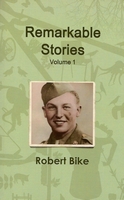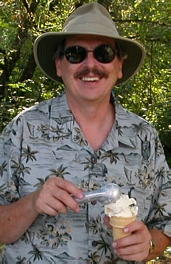
Robert
Bike
Licensed
Massage Therapy #5473
Eugene, Oregon
EFT-CC, EFT-ADV
Teaching Reiki Master
Life Coach
Gift Certificates
|
Reiki
Private classes. |
|
Member
OMTA & ABMP President of the Oregon Massage Therapists Association 2008-2010 & 2012-2013 |
|
I
graduated from Freeport (Illinois) High School. |
|
Please
help keep
this site free. Buy one of my books, on sale below. All sales go to help support this website. |
|
Remarkable
Stories, Remarkable
events have happened in Freeport and Stephenson County, Illinois,
and remarkable people have lived there. These are stories gathered
about people and events from 1835 through World War II. |
|
Biblical
Aromatherapy
by Robert Bike 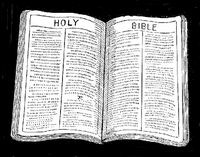
The Bible mentions about 232 plants by name, or closely enough to figure out what plant is meant. Of these, 24 are aromatic plants; that is, parts of the plants can be pressed or distilled to get an essential oil. Essential oils are the lifeblood of plants and have tremendous healing capabilities. The
healing power of plants is the basis for modern medicines.
Originally published in manuscript form in 1999, I completely revised the book and added illustrations. To order
Biblical Aromatherapy in paperback, List price $24.99; introductory offer $19.99 To order the pdf version and download to your computer or phone, The electronic version is only $2.99! |
Publicity!
|
Olga
Carlile, columnist for the Freeport (Illinois) Journal Standard,
featured this website in her column on January 19, 2007. |
|
Harriet
Gustason, another columnist for the Freeport Journal Standard,
has featured this website twice. Click to see pdf of articles:
June 29, 2012 November 3, 2012 |
|
"My
Life Purpose is to inspire my friends |
Robert Bike, LMT, LLC
The Class of 1867
Jennie
Bowen moved to Savanna.
Leonard Colby, Beatrice, Nebraska.
Emma Hent married Mr. McCutcheon, and moved to Des Moines, Iowa.
Charles R. Sheetz became a physician in Freeport and later Algona, Iowa.
Emily Sheetz married Mr. Martin, and lived in Freeport and later Amboy, Illinois.
Leonard W. Colby enlisted as a teenager and
fought in the Civil War as a private, then rose to become a general;
he served two terms in the Nebraska State Senate; he led troops in the
Indian Wars; he served three years as our nations second highest legal
officer, the Assistant Attorney General of the United States, became
a very wealthy man through his legal skills, and closed out his career
as a judge.
He was also a kidnapper, adulterer, embezzler and possibly even a rapist.
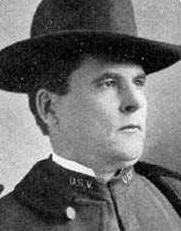 Leonard
W. Colby was was born in Cherry Valley, Ohio, on August 5, 1848. His
parents, Rowell and Abigail Colby, moved the family to Silver Creek
Township, Stephenson County, Illinois, in December of 1849. Abigail
was the daughter of Major William Livingston of Massachusetts.
Leonard
W. Colby was was born in Cherry Valley, Ohio, on August 5, 1848. His
parents, Rowell and Abigail Colby, moved the family to Silver Creek
Township, Stephenson County, Illinois, in December of 1849. Abigail
was the daughter of Major William Livingston of Massachusetts.
Leonard grew up working on the family farm. In 1863, at age 15, he enlisted as a private in Company B, 8th Regiment, Illinois Volunteer Infantry. He was wounded in the siege at Mobile. He captured a Confederate flag in the charge at Fort Blakely, Alabama.
Leonard Colby graduated from Freeport High School in Freeport, Illinois, in 1867. In the fall of 1867 he entered the University of Wisconsin, and graduated with the highest honors in his class in 1870, earning B. A. and C. E. degrees.
He then went to law law school at the University of Wisconsin, graduating in 1871, again with the highest honors of his class, with the degree of LL. B., and was admitted to practice at the Wisconsin Supreme Court.
On June
23, 1871, he married Clara D. Bewick, a native of London, England, at
Madison, Wisconsin. He was always the love of her life, though he didn't
always return the favor. They had three children: Ada May, Clarence, and
Marguerite Elizabeth.
Leonard and Clara Colby moved to Beatrice, Nebraska in November 1871. Clara was smart and independent. She was a suffragist, working to bring women equal rights. She was close friends with Susan B. Anthony and Elizabeth Cady Stanton. She owned and was editor of The Woman’s Tribune, a suffragist newspaper.
On June 25, 1875, Colby earned a commission to First Lieutenant of Infantry in the Nebraska State Troops, and served in the Sioux and Cheyenne Indian wars. In June of 1877 he earned a commission as Captain of a company of mounted rifles.
Colby was elected to the Nebraska State Senate in 1877-1878.
In 1878, Colby commanded a battalion in a 500-mile march against hostile Indians in Nebraska, Wyoming and Dakota.
In August, 1880, he was commissioned Captain of the Beatrice Guards. In July, 1881, he became Colonel of the 1st Nebraska Infantry Regiment.
In March, 1882, the Burlington and Missouri River Railroad workers went on strike. (They wanted $1.50 per day instead of the $1.25 they were being paid.) The original strikers grew from 75 to 3000. Omaha was put under Martial Law. Colby was put in command of the Nebraska State Troops and six companies of United States Regulars to quell the strike.
Colby was again elected to the Nebraska State Senate in 1887-1888.
From 1887-1896 Colby held the office of Brigadier-General, with command of the Nebraska State Troops, two infantry regiments, a troop of cavalry and a battery.
In 1890-1891, Colby led his troops during the Sioux Indian uprising. For the successful conduct of this campaign he received a gold medal from the State of Nebraska for gallant service.
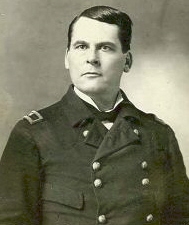 President
Harrison appointed Leonard Colby to be Assistant Attorney General of the
United States from 1890-1893.
President
Harrison appointed Leonard Colby to be Assistant Attorney General of the
United States from 1890-1893.
In July, 1894, General Colby was again called into service to suppress the strike at the South Omaha stock yards.
In 1895 he was an attorney at Washington, D. C., for the Creeks, Cherokees, Seminoles and four other Indian tribes, and won suits against the government for nearly $7,000,000.
In December of 1896, Colby organized the American-Cuban Volunteer Legion, with headquarters at Matamoras, Mexico, and during the next year mustered, armed and equipped 25,000 volunteers for the establishment of the Cuban Republic.
On June 3, 1898, President McKinley commissioned General Colby to be Brigadier General of the United States Volunteers to serve in the Spanish-American War.
General Colby was first in command at Chickamauga Park, Georgia, at Anniston, Alabama, and in January, 1899, at Havana, Cuba.
General
Colby returned to Washington in February, 1899, to be mustered out.
After the Spanish-American war, Leonard Colby went back to practice law in Nebraska, Kansas, Colorado, Dakota, Idaho, Wyoming, Missouri, Iowa and the Western Territories, with offices at Beatrice, Nebraska, and Washington, D. C.
Leonard and Clara divorced on March 30, 1906.
Leonard married Marie H. Miller on June 4, 1906. They had one child, Paul Livingston Colby.
Colby
became a Nebraska District Judge in Nebraska's 18th District from 1921-1924.
Leonard W. Colby died on November 18, 1924, at Leavenworth, Kansas.
Now that's Leonard Colby's official resume.
The true, remarkable story of General Colby's life is told in my book, Remarkable Stories, Volume 1. Only 99 cents to download in .pdf format or $11.99 in paperback.

